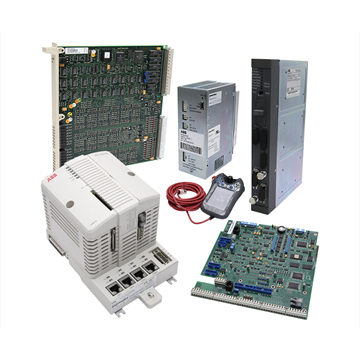Unlocking the Secrets to Finding the Best PLC Spare Parts for Your Machinery!
In the world of industrial machinery, PLC (Programmable Logic Controller) spare parts play a crucial role in maintaining operational efficiency and reliability. These components are the backbone of automated systems, ensuring that machines function smoothly and effectively. However, sourcing quality PLC spare parts can be a daunting task for many users. With an overwhelming number of options available, the challenge lies in distinguishing between premium products and subpar imitations. This article aims to guide you through the essential aspects of finding the best PLC spare parts for your machinery, addressing common challenges and providing valuable insights to make the purchasing process easier and more efficient.

Understanding PLC Spare Parts
PLC spare parts refer to the various components that support the functioning of PLC systems in industrial applications. These parts can include input/output modules, power supplies, processors, and communication modules, each serving a specific function within the control system. For instance, input/output modules are responsible for interfacing with sensors and actuators, while processors execute control logic and process data. The significance of these components cannot be overstated, as they directly impact the performance and reliability of machinery. Common types of PLC spare parts used in industrial settings include power supplies, memory modules, and various types of interface modules, all of which contribute to the seamless operation of automated processes.
Identifying Quality PLC Spare Parts
When it comes to purchasing PLC spare parts, quality is paramount. High-quality components are characterized by durability, compatibility with existing systems, and adherence to performance standards. To assess the quality of parts before making a purchase, consider factors such as the reputation of the manufacturer, product certifications, and customer reviews. Personally, I remember a friend of mine who once opted for a cheaper alternative for a crucial PLC component, only to face frequent breakdowns and costly repairs. This experience highlights the importance of investing in reliable parts. Additionally, checking for warranties and guarantees can provide further assurance of the product's quality, enabling you to make an informed decision.
Where to Find PLC Spare Parts
Finding PLC spare parts can be accomplished through various channels, each with its own advantages and drawbacks. Online platforms have become increasingly popular due to their convenience and the vast selection available. However, it's essential to research the credibility of vendors before making a purchase. Local suppliers can also be a great option, especially if you need parts quickly, as they often have them in stock. Industry trade shows present another valuable opportunity to connect with manufacturers and suppliers directly. When selecting reliable vendors, look for those with established reputations, good customer service, and a solid return policy. Networking with industry professionals can also provide insights into trustworthy sources.
Cost Considerations for PLC Spare Parts
Evaluating the cost of PLC spare parts involves balancing budget constraints with the potential impact of downtime. It's crucial to consider not just the price of the parts, but also the long-term value they provide. Cheaper options may save you money upfront, but they could lead to increased maintenance costs and reduced machine reliability over time. To find value without compromising on quality, consider purchasing from reputable vendors that offer competitive pricing and warranties. Additionally, don't hesitate to ask about bulk purchase discounts or loyalty programs that could help reduce costs in the long run. My experience has shown that a careful approach to budgeting can significantly enhance the overall reliability of your machinery.
Maintenance Tips for PLC Systems
Maintaining PLC systems is essential for prolonging the life of both the machinery and spare parts. Implementing best practices such as routine checks, regular software updates, and preventive measures can greatly enhance system performance. It's advisable to schedule periodic inspections of the PLC components to identify potential issues before they escalate. Keeping the environment around the PLC clean and free of dust can also help prevent damage. Furthermore, training staff on proper handling and operation of PLC systems ensures that they are less likely to encounter operational problems. These practices not only extend the lifespan of your PLC spare parts but also contribute to the overall efficiency of your industrial processes.
Summarizing Key Insights for PLC Spare Parts
In conclusion, sourcing quality PLC spare parts is vital for maintaining optimal performance in industrial machinery. By understanding the different types of parts available, identifying quality characteristics, and knowing where to purchase them, you can make informed decisions that will benefit your operations. Additionally, considering cost factors and implementing effective maintenance practices will further enhance the reliability and longevity of your PLC systems. I encourage you to apply the tips provided in this article to improve your purchasing decisions and ensure that your machinery operates at its best.










Comments